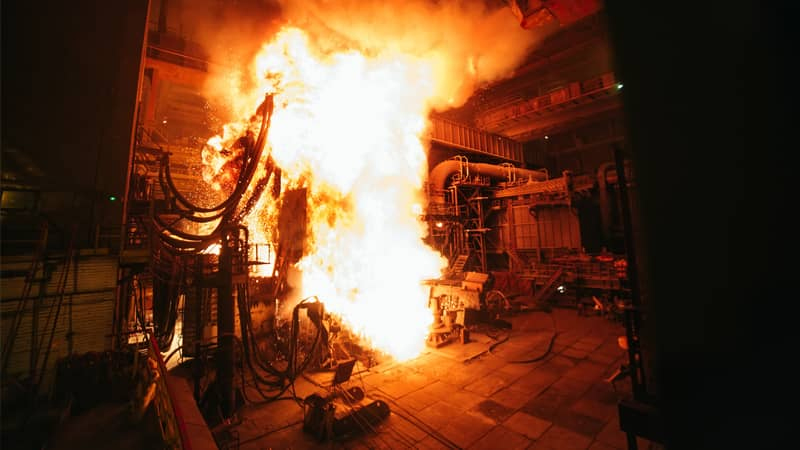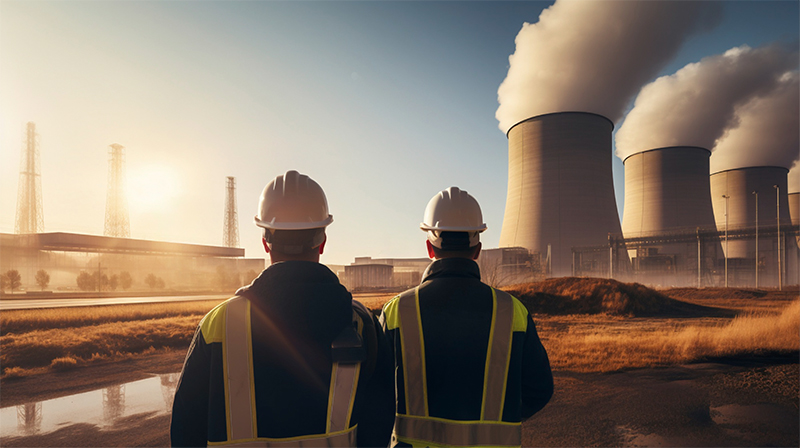National Plant Explosion attorneys in just one call
America's Top rated Plant Explosion Lawyers
Find out why we have some of the best industrial explosion attorneys in America
Have You or a Loved One Been Injured in a Devastating Plant Explosion?
The experienced lawyers at Goldberg & Loren are familiar with plant explosion cases and are here to fight for your rights. With our extensive knowledge and expertise, we will work tirelessly to ensure you receive the compensation you deserve for your injuries.
Contact our plant explosion lawyers at (888) 522-0335 to schedule your free consultation and start building your case. We are ready to fight for you.
What Causes Plant Explosions?
Plant explosions can occur for a variety of reasons. Here are a few examples:
- Equipment Failure: Malfunctioning or poorly maintained equipment such as boilers, pressure vessels, storage tanks, and piping systems can lead to explosions.
- Chemical Reactions: Uncontrolled reactions or mixing of incompatible substances can generate excessive pressure and heat, resulting in an explosion.
- Ignition Sources: Flammable materials can ignite from sources such as electrical sparks, open flames, hot surfaces, or static electricity, triggering an explosion.
- Overpressure Events: Sudden pressure buildup within vessels or systems, often due to overfilling, over-pressurization, or process upsets, can cause explosions.
- Human Error: Inadequate training, lack of adherence to safety procedures, or improper handling of hazardous materials may contribute to plant explosions.
- External Factors: Natural disasters, such as earthquakes or extreme weather conditions, or external interference, like sabotage or terrorist attacks, can potentially cause plant explosions.
The number of fires in factories increased by a whopping 129% between 2020 and 2021. [1]

Common Plant Explosion Injuries
Plant explosions can result in a wide range of injuries, with some common injuries being:
- Burns: Plant explosions can cause thermal burns from the intense heat released during the blast. Employees or workers in the explosion’s vicinity may suffer from first-degree to severe third-degree burns.
- Traumatic Injuries: The force of the explosion and flying debris can cause traumatic injuries such as fractures, lacerations, and blunt force trauma. These injuries may include head injuries, amputations, and internal organ damage.
- Respiratory Injuries: Plant explosions can release toxic chemicals and airborne contaminants, leading to respiratory injuries such as smoke inhalation, lung damage, or chemical poisoning.
- Blast Injuries: The high pressure and shockwave generated by explosions can cause blast injuries, including damage to internal organs, hearing loss, and traumatic brain injuries.
- Emotional Trauma: Witnessing or experiencing a plant explosion can result in psychological or emotional trauma, such as post-traumatic stress disorder (PTSD), anxiety, and depression.
- Chemical Exposure: Depending on the type of plant and the materials involved, workers and nearby individuals may suffer from chemical exposure-related injuries or illnesses, such as skin irritation, respiratory problems, or systemic toxicity.
Who Can Be Held Liable for a Plant Explosion Accident?
In the aftermath of a plant explosion, several parties can be held liable for the incident. These may include the plant owner, operators, contractors, manufacturers of faulty equipment, and even regulatory agencies responsible for ensuring safety standards are met.
The plant owner and operators are primarily responsible for ensuring the safety of the facility and its employees. Negligence in maintaining equipment, implementing safety protocols, and addressing known hazards can make them liable for any resulting accidents.
Contractors hired for maintenance or construction work at the plant may also be held accountable if their actions or negligence contributed to the explosion.
Manufacturers of equipment or machinery involved in the explosion may be found liable if their products were defective or not properly maintained. This can include liability for design flaws, manufacturing errors, or inadequate warnings and instructions for safe use.
Regulatory agencies tasked with overseeing industrial safety and enforcing compliance with regulations may also face scrutiny if an explosion reveals failures in their oversight or enforcement responsibilities.

Table of Contents
-
What are the Common Causes of Plant Explosions?
-
Common Plant Explosion Injuries
-
Who Can Be Held Liable for a Plant Explosion Accident?
-
What Compensation Can a Worker Receive from a Plant Explosion
-
What Evidence is Needed in a Plant Explosion Case?
-
How Long Do I Have to File a Claim from a Plant Explosion?
-
Plant Explosion Lawyer Goldberg & Loren
What Compensation Can a Worker Receive from a Plant Explosion?
In the event of a plant explosion, compensation for those affected may include the following:
- Worker’s Compensation: Employees injured in a plant explosion are generally eligible for worker’s compensation benefits, which can cover medical expenses, lost wages, and disability benefits.
- Personal Injury Claims: Individuals who were not employees of the plant but were injured as a result of the explosion may be entitled to file personal injury claims against the responsible party. This can seek compensation for medical expenses, lost income, pain and suffering, and other damages.
- Wrongful Death Claims: If the plant explosion results in fatalities, the families of the deceased may pursue wrongful death claims for compensation for funeral expenses, loss of income, and emotional suffering.
- Product Liability Claims: If the explosion was caused by a faulty or defective product, such as an equipment or machinery failure, victims may pursue compensation through product liability claims against the manufacturer or distributor of the faulty product.
- Environmental Damages: In cases where the plant explosion results in environmental damage, individuals or communities affected by pollution or contamination may seek compensation for property damage and health impacts.
What Evidence is Needed in a Plant Explosion Case?
One important piece of evidence needed in a plant explosion case is documentation of any safety procedures and protocols at the time of the incident. This can include equipment maintenance records, employee training, and safety inspections. A thorough review of these documents can help determine if any safety violations or negligence contributed to the explosion.
Eye witness testimonies are evidence in determining what happened leading up to and during the explosion. Witness accounts can provide valuable information about any unusual smells, sounds, or behaviors occurring prior to the explosion. They may also be able to provide insight into any potential warning signs or hazards that were overlooked.
Physical evidence, such as debris from the explosion, can also provide important clues. Analysis of the debris can help determine the source and cause of the explosion, such as a malfunctioning piece of equipment or a chemical reaction. Any surveillance footage or photographs from the scene can help piece together the events leading up to the explosion.
Our legal team will collect any relevant employee records, such as training certifications, work schedules, and personnel files. This can help determine if employees were properly trained and if any issues with staffing levels or fatigue may have contributed to the accident.

How Long Do I Have to File a Claim from a Plant Explosion?
The time limit for filing a claim following a plant explosion will be determined by the Statute of Limitations in the relevant jurisdiction.
The Statute of Limitations sets a deadline by which a lawsuit must be filed in order for it to be considered valid. This timeframe can vary from state to state and may also be influenced by the specific circumstances of the explosion.
Failing to file a claim within the allotted time frame can result in the forfeiture of compensation for damages and injuries sustained in the explosion.
Experienced Plant Explosion Attorneys
With a proven track record of securing fair compensation for victims of plant explosions and industrial accidents, Goldberg & Loren is well-equipped to represent the interests of those affected by plant explosions.
Our team of dedicated personal injury lawyers understands the complex legal and technical aspects of these cases and is committed to fighting for your rights. Contact us for a free consultation. Pay nothing unless we win.

FAQs
After a plant explosion, individuals and employees affected by the incident may have various legal options to seek compensation. These options might include filing personal injury claims against the responsible parties, pursuing product liability claims if the explosion was caused by faulty equipment or machinery, or seeking workers' compensation benefits for employees. Families who have lost loved ones in the explosion may pursue wrongful death claims. Environmental damages resulting from the plant explosion may also lead to legal actions for property damage and health impacts.
The release of hazardous chemicals, toxins, and pollutants into the air, water, and soil can result in environmental contamination, threatening ecosystems and wildlife. Nearby communities may face health risks due to exposure to toxic substances, leading to respiratory issues, skin conditions, and long-term health problems. Environmental cleanup efforts may be necessary to mitigate the lasting effects of pollution.
Counseling services and mental health support may be provided to help workers cope with the emotional impact of the explosion. Employee assistance programs and company-provided resources may offer additional support for those dealing with the physical, emotional, and financial consequences of the plant explosion.
Source:
[1] Forrester, J. S. (2023, November 7). Number of Factory Fires Jumped by 129% in 2021. https://www.powderbulksolids.com/industrial-fires-explosions/number-of-factory-fires-jumped-by-129-in-2021

We fight hard for our clients who have been injured in a plant explosion. Our personal injury lawyers fight for maximum compensation.
George Goldberg
Senior Partner
Have Questions About Your Case? Call Us Today:












